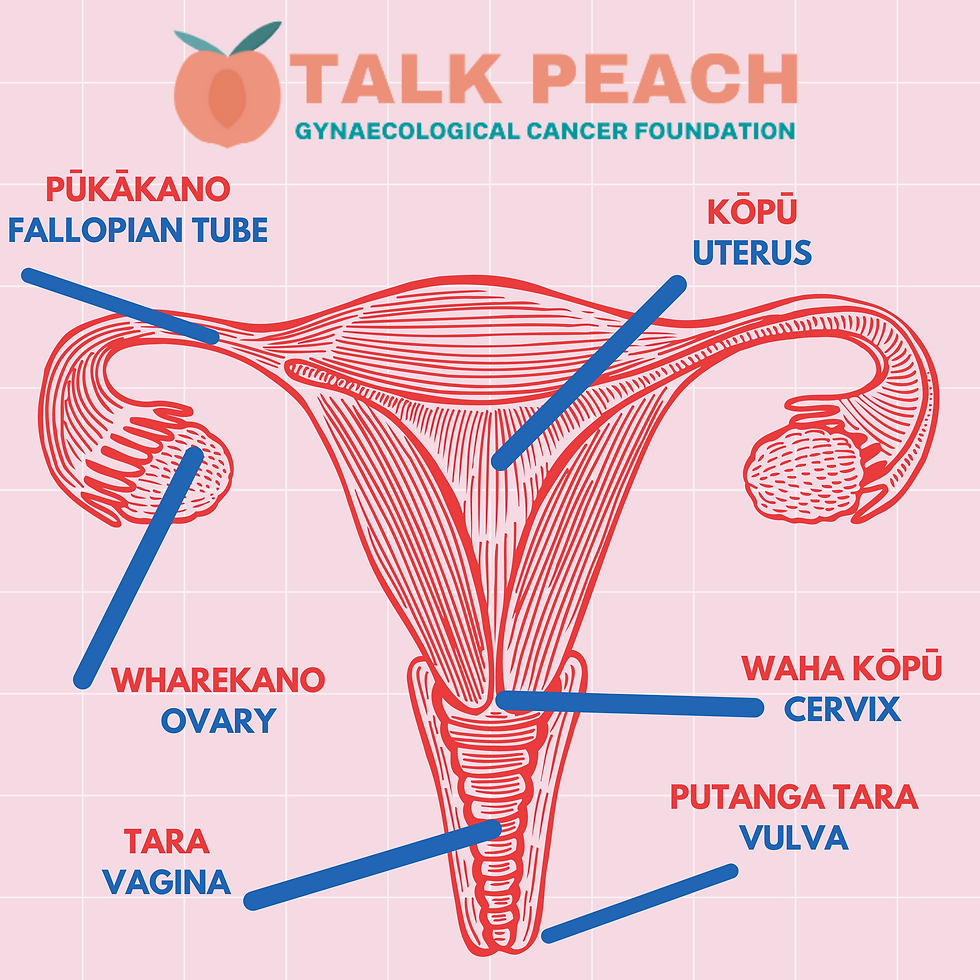When your mum gets cancer
- Helen King

- Sep 29, 2021
- 3 min read
Updated: Sep 29, 2021

Thirteen years ago my parents turned up unannounced at my flat to tell me mum had cancer. It was a weekday evening, I was 26 and had just started radio producing at a local talkback station. I don't remember much about what I said but my instant response was to start crying.
I spent the following day in bed crying, I was so scared of the word cancer and what that might mean. My mind instantly went to the worst-case scenario. No one else in my family had been through cancer. My tears came from what felt like a very primal place, my greatest fear growing up was mum would die.
The 'lazy' cancer
Mum was diagnosed with uterine cancer (sometimes called endometrial). She had noticed unusual bleeding and went straight to the doctor. As a post-menopausal woman, she was a prime candidate for this type of cancer. When she spoke to us about what stage the cancer was she said 'we're lucky, uterine cancer is a lazy cancer'. Her's was encased within the uterus, no rogue cells had made their way out of her womb.
The treatment her specialist recommended was a hysterectomy and a course of radiation. We joked that she didn't need her uterus anymore (it's a family trait to make jokes at inappropriate times).
Treating Uterine Cancer
I remember visiting after she had the hysterectomy, that was the first time it really hit me the seriousness of a cancer diagnosis. I describe my mum as little but fierce. She has taken after her mother's side who specialise in producing short women. Lying in the hospital bed, confused from the pethidine she looked so vulnerable. And small. I wasn't used to seeing mum like that. Mum's aren't meant to get sick, they're indestructible and hold things together.

At the time, the standard course of radiation was for the radiation oncologist to figure out how many hours of radiation a person would need. They would then be strapped to a hospital bed for X amount of hours as the invisible rays zapped away any remaining cancer cells. It sounded like torture to me, I can't remember the exact duration she had to lay there.
The aftermath of cancer
After mum, I think cancer was hardest on Dad. Once the initial shock and getting through diagnosis and treatment is done with, that's when the grief often sets in. It's once everyone sees you're 'OK' and through the worst. No one really talked about it, we all just went on with things and held our breaths each year she had to go back for her annual check. Even thirteen years later my mind will jump to cancer if mum is going for tests.
Cancer can prompt you to bargain with the universe. When mum was in the middle of treatment I was in Christchurch for work. It was pre-earthquake, I visited the cathedral and wrote on the request for prayer board, "please God let mum live long enough so she can be a grandparent". I even took up the offer of my then flatmates to visit her evangelical grandfather and have him pray for her.
Cancer visits again
No one expected cancer to strike twice in our family. In 2018 I found a lump that turned out to be one of three tumours. I was diagnosed with Her2 positive breast cancer and went through 18 months of treatment. Mum and dad were there for all the appointments leading up to my mastectomy. Mum became my chemo buddy, even when I had hissy fits near the end of treatment she kept showing up to take me.
Our family isn't unique, cancer rips through so many Kiwi families. The impact is huge, we have been lucky in a sense that so far neither Mum nor I have had a reoccurence.

Moving on from cancer
It's taken me thirteen years to be able to sit down and write about Mum's cancer. I think it's something I packed away and shoved to the corner of my brain.
As she reached each milestone and signed out of the system after five years I take it for granted we dodged that bullet.
Note - mum is a grandparent twice over courtesy of my sisters. I have provided her with three fur grandchildren.
Symptoms of uterine cancer include
Abnormal vaginal bleeding, including a change in your period (heavier or longer than normal), bleeding between periods, post-menopausal bleeding, and unusual vaginal discharge.

Other symptoms may include
Pain during sex
Pelvic or abdominal pain
Pain or feeling of pressure in the pelvis, lower abdomen, back or legs
Pain when you pee, difficulty with urination or blood in urine
Painful bowel movements, constipation or blood in the stool
Bleeding from the bladder or rectom
Buildup of fluid in the abdomen or legs
Weight loss
Lack of appetite
Difficulty breathing
Information source: Talk Peach, www.talkpeach.org.nz
Want to help people impacted by gynecological cancers? Donate to Talk Peach



Comments